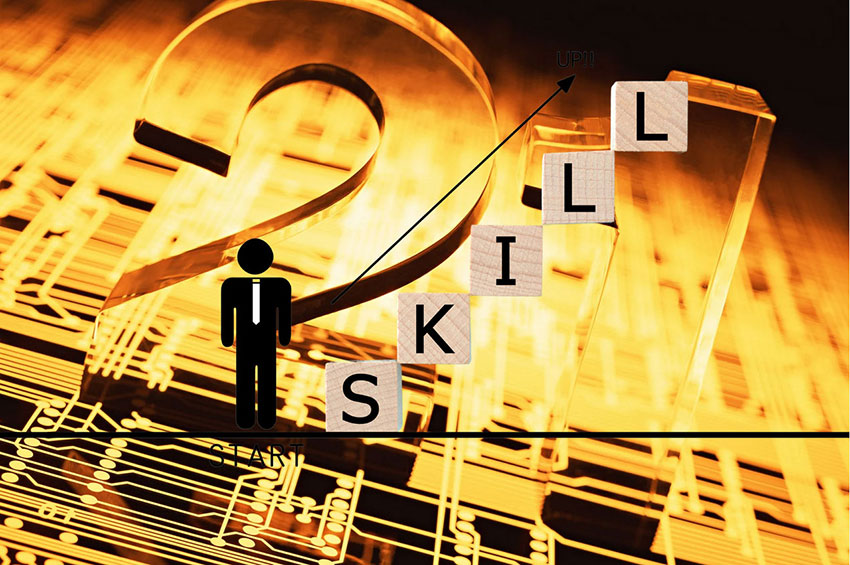
August 26-2025
By: Marisa
Amid the relentless wave of technological change and globalization, today’s workplace demands more than just technical knowledge. We are in an era where 21st-century skills are the main key to success—not only for individuals but also for the sustainability of organizations. These skills include critical thinking, creativity, collaboration, communication, digital literacy, and adaptability. In this ever-evolving landscape, the Human Resources (HR) department plays a crucial role in shaping an adaptive workforce capable of facing future challenges.
Why Are 21st-Century Skills So Important?
Traditional education and training models often focus on knowledge accumulation. However, in today’s information-rich era, the ability to search for and memorize facts has become less relevant compared to the ability to:
Think Critically and Solve Problems: Analyze information, identify root causes, and formulate innovative solutions.
Creativity and Innovation: Generate new ideas and original approaches to existing challenges.
Collaboration and Teamwork: Work effectively with others from diverse backgrounds and areas of expertise to achieve common goals.
Effective Communication: Clearly convey ideas, both verbally and in writing, while also practicing active listening.
Digital Literacy: Use technology efficiently and ethically to search for, manage, and create information.
Flexibility and Adaptability: Learn new things, adjust to change, and thrive in uncertain environments.
Without these skills, employees will struggle to innovate, collaborate effectively, and keep up with rapid technological developments, ultimately hindering organizational growth.
The Key Role of HR in Building an Adaptive Workforce
HR must go beyond its traditional administrative function and become a strategic partner in developing organizational capabilities. Below are some of HR’s key roles in preparing an adaptive workforce:
1. Designing Comprehensive Learning and Development Strategies
HR needs to identify which 21st-century skills are most relevant to the company’s strategic objectives. This is no longer about one-time training, but about creating a sustainable learning ecosystem.
Segmented Training Programs: Develop programs that focus not only on technical (hard) skills but also on interpersonal and cognitive (soft) skills such as complex problem-solving, design thinking, or emotional intelligence.
Digital Learning Platforms: Leverage e-learning, MOOCs (Massive Open Online Courses), and internal platforms for flexible access and personalization.
Project-Based Learning: Encourage employees to learn through hands-on experience by working on challenging cross-functional projects.
2. Transforming Recruitment and Selection Processes
HR must update recruitment criteria to identify candidates who already show strong potential in 21st-century skills.
Competency-Based Assessments: Use simulations, case studies, or behavioral interviews to assess critical thinking, collaboration, and adaptability.
Focus on Learning Potential: Prioritize candidates with a growth mindset and a strong drive to keep learning and adapting.
3. Promoting a Culture of Continuous Feedback and Coaching
Skill development doesn’t only happen in classrooms. HR should facilitate a culture where constructive feedback and coaching are the norm.
Manager Training: Train managers to become effective coaches who can provide specific feedback, encourage critical thinking, and support team development.
360-Degree Feedback Systems: Implement systems where employees receive feedback from peers, supervisors, and subordinates, giving them a comprehensive perspective on their strengths and development areas.
4. Creating an Environment that Encourages Experimentation and Innovation
HR can play a vital role in creating an environment where employees feel safe to experiment, learn from failure, and share new ideas.
Innovation Initiatives: Support internal hackathons, ideation workshops, or incubator programs to stimulate creativity.
Building a Culture of Psychological Safety: Ensure that employees feel comfortable taking risks and voicing their opinions without fear of judgment.
5. Measuring and Evaluating Program Effectiveness
HR must regularly measure the impact of skill development initiatives. This can be done through:
Skills Surveys: Assess employees’ skill improvements over time.
Performance Analysis: Link development programs to improvements in individual and organizational performance.
Training ROI: Evaluate the return on investment of training programs.
The role of HR in developing 21st-century skills is the foundation for organizational sustainability and future success. By shifting from a transactional focus to a strategic role, HR can ensure that companies have a workforce that is not only competent today but also adaptive and ready to face unimaginable challenges in the future. This is a vital investment that will bring long-term benefits in innovation, productivity, and organizational resilience.
👉 Visit our website at https://campsite.bio/qqgroup
Let’s move forward together toward a Greater Indonesia!
